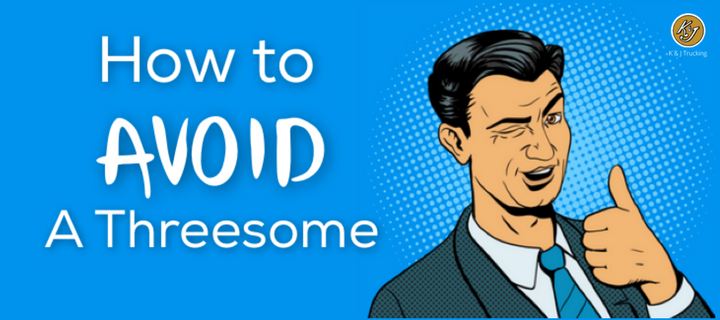How to Avoid a Threesome

Get your minds out of the gutter, we aren't talking about THAT kind of threesome. Quite frankly, we don't want to know what you think about that kind of activity! We DO want to help you try to avoid one particularly nasty threesome that often targets truck drivers.
The High Blood Pressure, Diabetes, and Sleep Apnea "Love Triangle"
What if we told you the most dangerous thing out on the road could be sitting right in your cab? Sleep apnea, high blood pressure and Type 2 diabetes are three of the most common chronic conditions that we see in truck drivers. Part of the reason these conditions are so tricky is that they are interrelated and often related to obesity, a high-fat and high-sodium diet, too little potassium and vitamin D, and a sedentary lifestyle; factors that are often at play in the lives of drivers.
The Diabetes and High Blood Pressure Truck Driver Connection
About 80% of people with Type 2 diabetes also have high blood pressure. The hypertension and type 2 diabetes mix is particularly deadly and can significantly raise your risk of having a stroke or heart attack.
Statistics from the National Institute of Health show that compared to the general population, the prevalence of diabetes is 50% higher in truck drivers. The Journal of Occupational and Environmental Medicine notes that 87% of truck drivers have hypertension or pre-hypertension, compared to the national average of 58.3%.
Those are pretty hefty numbers.
Enter Sleep Apnea...
But it isn't just these two conditions that plague truck drivers. Sleep apnea (or obstructive sleep apnea) is another huge issue for drivers. This dangerous condition is characterized by episodes of complete or partial airway obstruction, causing breathing to stop and start again throughout the night and preventing deep sleep.
What's more, there is a proven connection between those who have diabetes and high blood pressure and those who have sleep apnea. So much so that the American Academy of Sleep Medicine recommends that anyone diagnosed with Type 2 diabetes and high blood pressure should also be tested for obstructive sleep apnea.
The Good News
If this blog is starting to sound a lot like your own health history, don't let fear prevent you from getting help! Receiving a diagnosis is by far the worst part for most people. Once you know what conditions you have you can usually make simple changes to manage your risks, such as eating more vegetables and lowering your sodium intake.
Even More Good News
According to the American Academy of Sleep Medicine, those who struggle with sleep apnea, diabetes, and high blood pressure will often find that the sleep apnea treatment helps lower their blood pressure and blood sugars because the body is able to function better with increased quality rest.
If you are worried this threesome might be knocking on your cab door, make time to go see your doctor and take your health seriously. We want drivers healthy and on the road!
